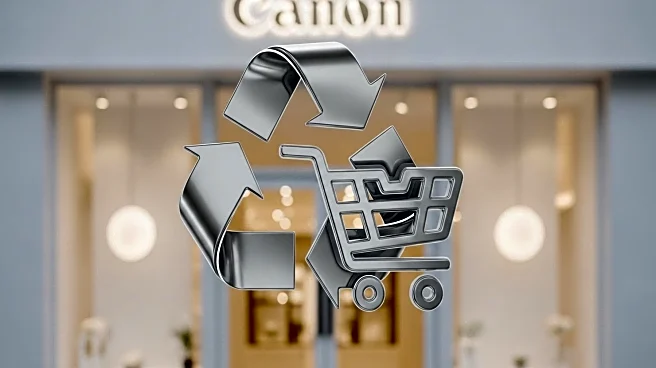What is the story about?
What's Happening?
Recovo, a company originally founded in 2021 as a business-to-business (B2B) marketplace for surplus textiles, is transitioning to a direct-to-consumer model. The company has launched a new service called Recovo Recommerce, which allows fashion brands to integrate a resale channel for used garments or returns directly on their digital platforms. This move is aimed at helping brands manage the circularity of their products, in line with European regulations promoting extended producer responsibility for textile waste. The service offers a 'plug-and-play' solution, enabling brands to create a resale space on their websites under their own visual identity. The system uses artificial intelligence to optimize inventory management, authenticate garments, and set competitive resale prices. Recovo's strategic shift comes after establishing a network of around 1,100 clients and recovering over 1.7 million meters of fabric across 16 European countries.
Why It's Important?
This strategic pivot by Recovo is significant as it aligns with the growing trend of sustainability in the fashion industry. By focusing on direct-to-consumer recommerce, Recovo is addressing the increasing demand for sustainable fashion solutions and the need for brands to manage their product lifecycle more effectively. The move could potentially reduce textile waste and encourage repeat purchases, benefiting both consumers and brands. The use of artificial intelligence to streamline the resale process further enhances the efficiency and appeal of this model. As the company targets the premium segment and plans international expansion, particularly in the French and German markets, it could set a precedent for other fashion brands to follow suit, thereby influencing industry standards and practices.
What's Next?
Recovo's focus on international expansion and the premium segment suggests that the company will continue to innovate and refine its recommerce platform. The integration of artificial intelligence in inventory management and resale pricing could attract more brands looking to enhance their sustainability efforts. As more fashion brands adopt this model, there could be increased collaboration with technology companies to further develop digital product passports and other traceability tools. The success of Recovo's new model could also prompt regulatory bodies to consider similar frameworks in other regions, potentially leading to broader adoption of sustainable practices in the global fashion industry.
















